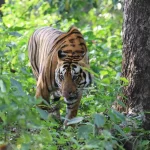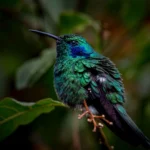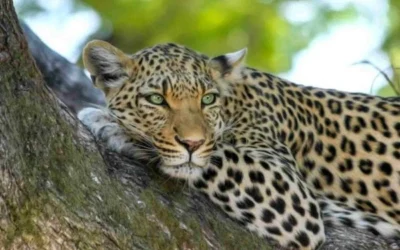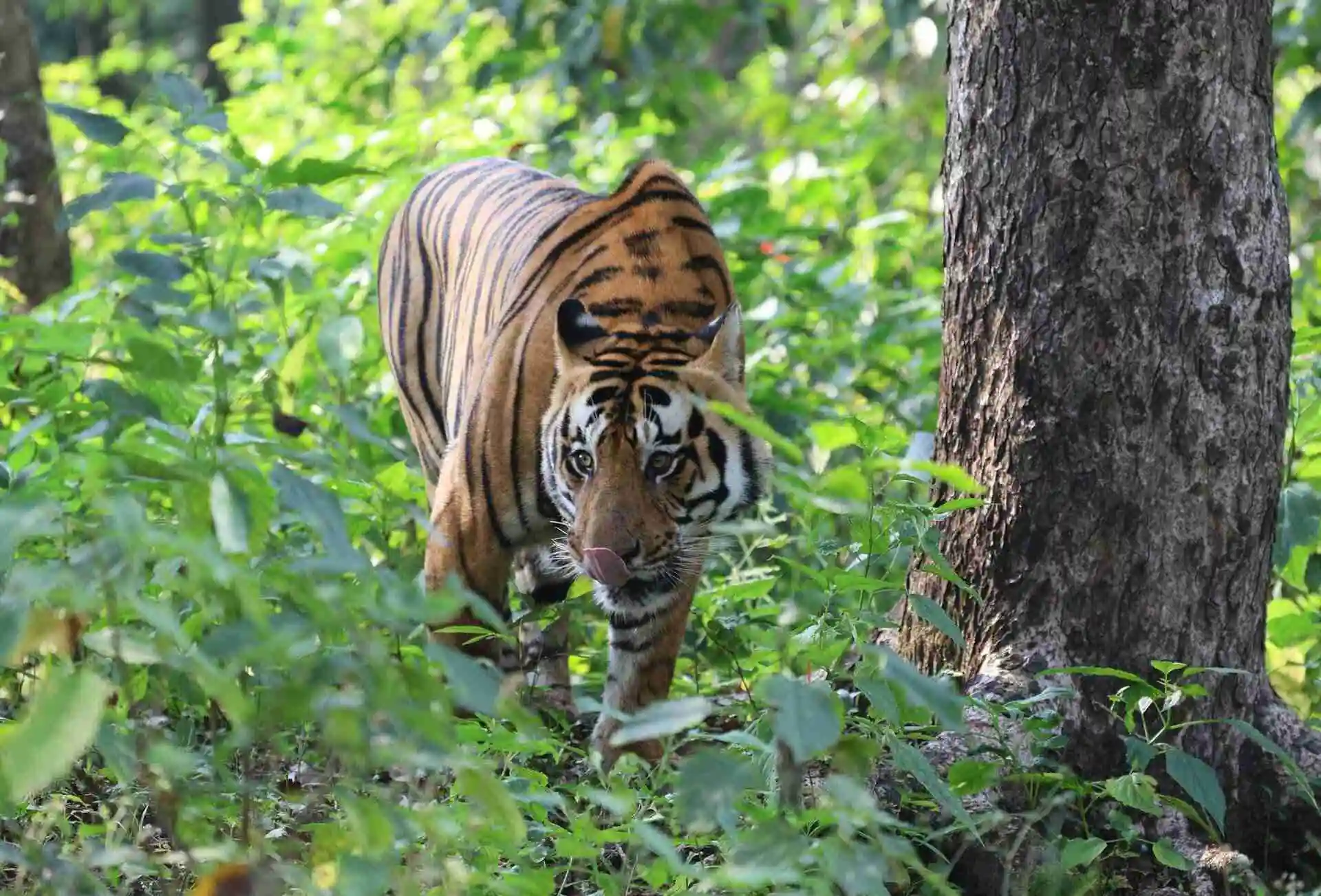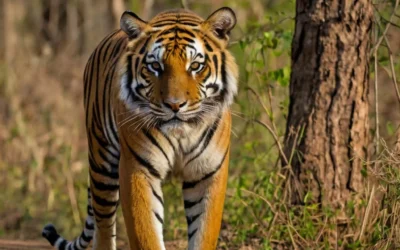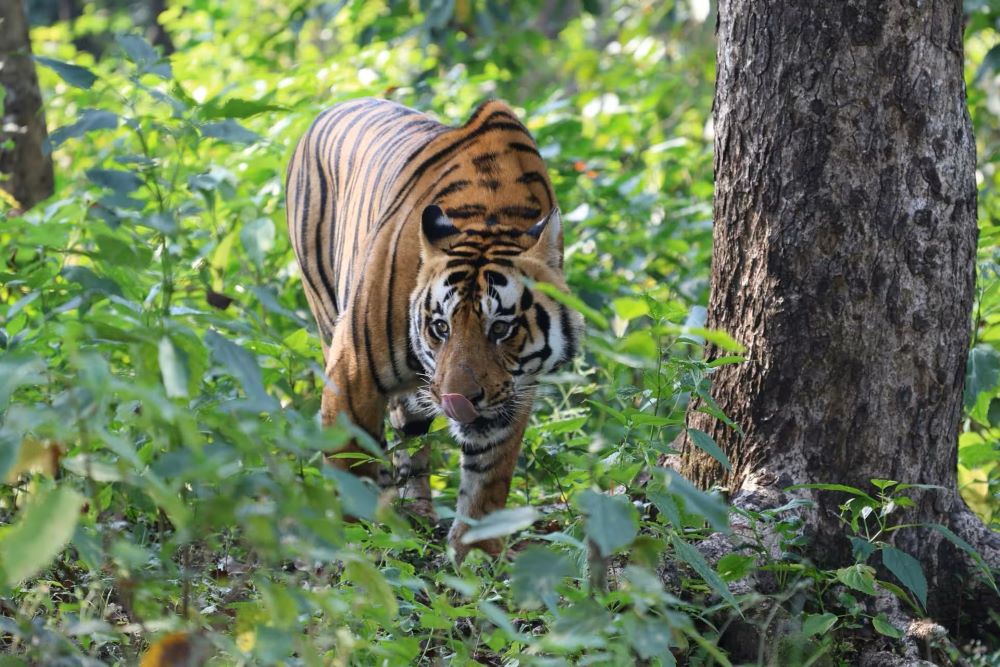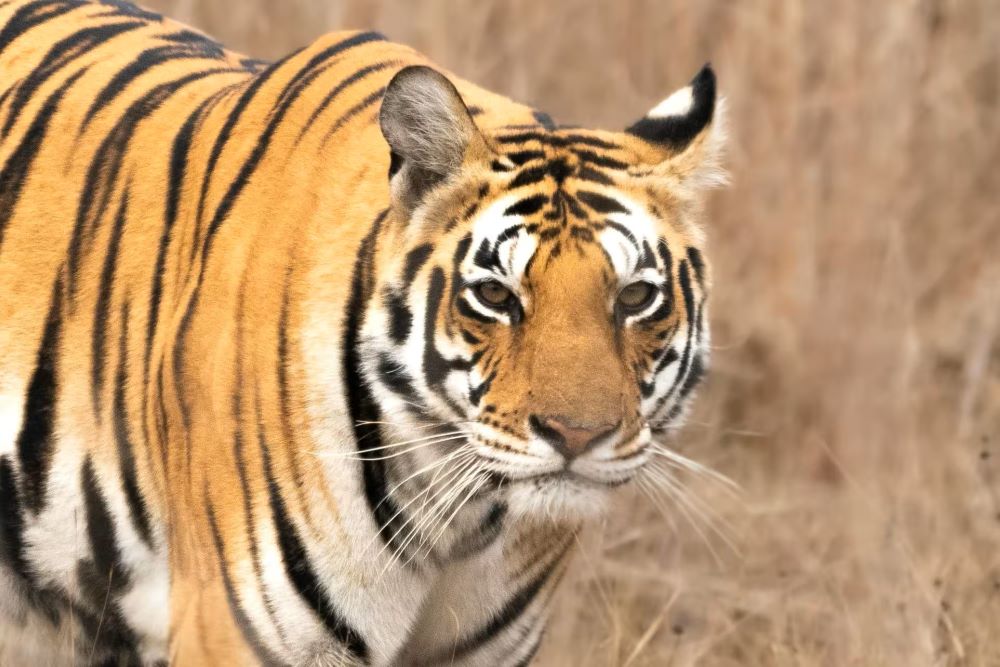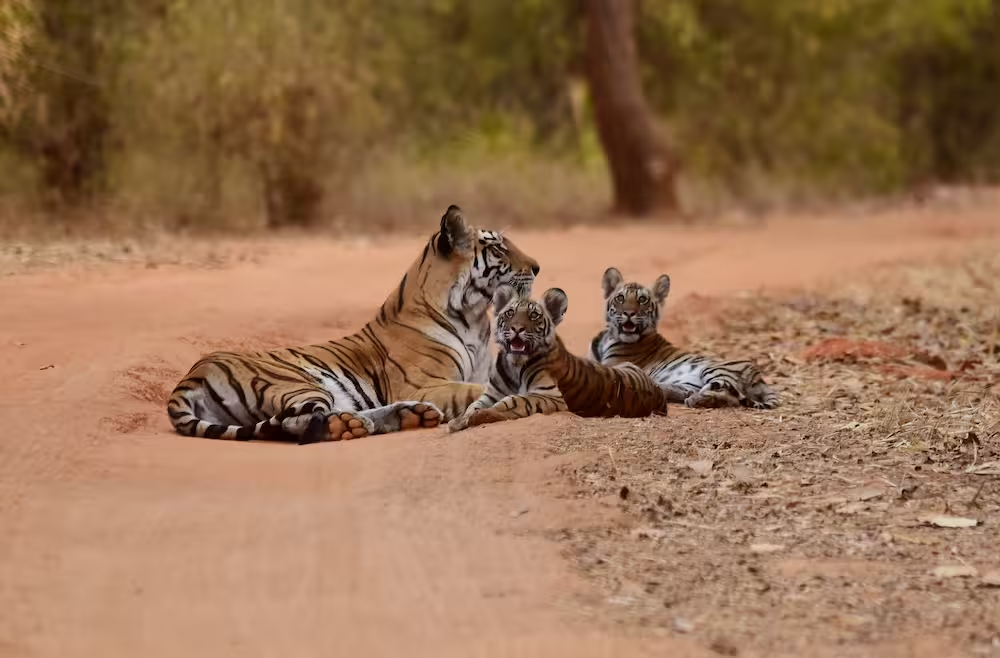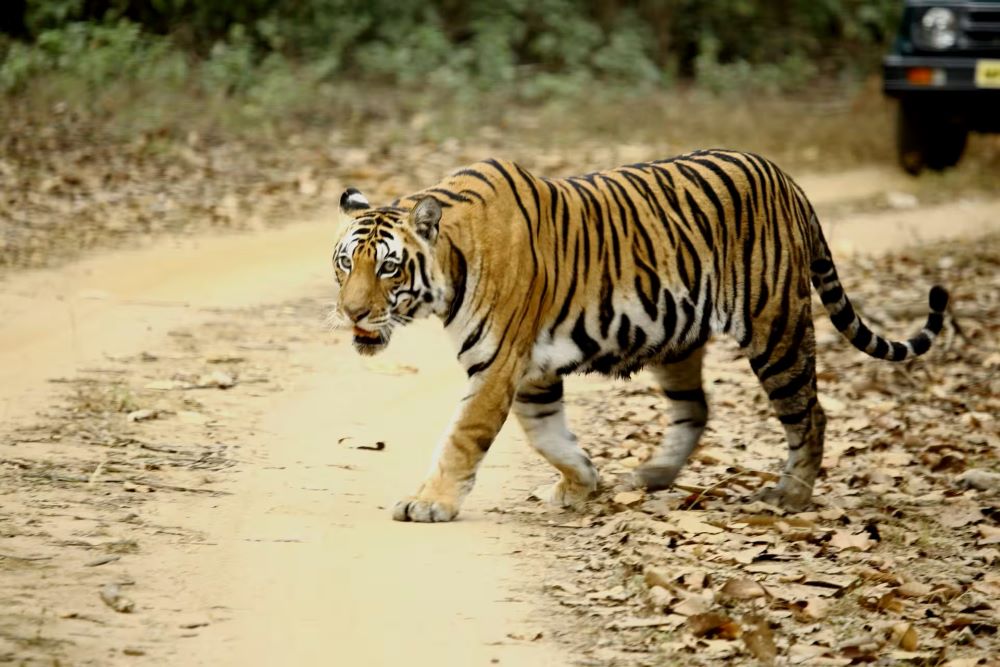The best time to visit Kanha for tiger sightings depends on your preferences. Winter (November to February) offers pleasant weather, lush landscapes, and good chances of spotting tigers. However, Summer (March to May) is considered the peak season for tiger sightings, as the dry conditions force animals to congregate near water sources. While the heat can be intense, it’s a great time for wildlife photography.
Monsoon (June to September) brings heavy rainfall, lush greenery, and unique wildlife behavior. However, the park remains closed during this time. Ultimately, the best time to visit Kanha depends on your comfort level with weather conditions and your specific goals for the trip.
Summer in Kanha
Summer in Kanha, from March to June, is a unique time to explore the park. As the temperatures rise, the landscape transforms into a golden tapestry of dry grasslands. This dry season brings animals closer to water sources, making it an excellent time for tiger sightings. The sparse vegetation offers better visibility, increasing your chances of spotting these elusive cats. However, be prepared for the intense heat and plan your safari accordingly. Early morning safaris are ideal to avoid the scorching afternoon sun.
Winter in Kanha
Winter is the best time to visit Kanha National Park for a thrilling tiger safari. The weather is pleasant, with clear skies and cool temperatures. The dry, crisp air improves visibility, making it easier to spot wildlife. As water sources begin to dry up, animals congregate around waterholes, increasing your chances of encountering tigers and other predators. The park’s lush green landscape transforms into a golden canvas, creating a stunning backdrop for your safari adventure.
Monsoon in Kanha
Kanha National Park is typically closed during the monsoon season (July to September), it’s a magical time for the wildlife. The heavy rainfall rejuvenates the park, transforming it into a lush green paradise. The water bodies fill up, attracting a variety of animals. You might even spot tigers quenching their thirst or cooling off in the water.


